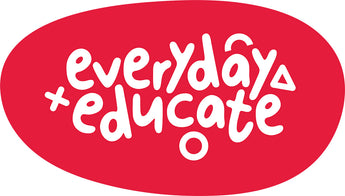Fine motor skills are like the unsung heroes of our daily activities. They're involved in tasks as simple as buttoning a shirt, to as complex as writing an essay. This article will explore the importance of fine motor skills in early childhood development. Ready to dive in?
Understanding Fine Motor Skills
Fine motor skills are the abilities required to control the smaller muscle groups in our hands, fingers, and wrists. Picture them as the nimble fingers of a pianist swiftly moving over the keys, creating beautiful music.
1. The Role of Fine Motor Skills in Early Childhood Development
Fine motor skills play a crucial role in a child's physical, cognitive, and social development. It's like the underlying melody in the symphony of growth and learning.
2. Fine Motor Skills and Physical Development
Physical development in early childhood is highly reliant on fine motor skills. From holding a spoon to tying shoelaces, fine motor skills are at work. It's as if these skills are the backstage crew making the performance possible.
3. Cognitive Development and Fine Motor Skills
There's a strong connection between cognitive development and fine motor skills. They're like two sides of the same coin, each affecting and influencing the other.
4. How Fine Motor Skills Influence Social and Emotional Development
Fine motor skills also impact a child's social and emotional development. Imagine the sense of accomplishment a child feels when they can button their shirt independently!
5. Developing Fine Motor Skills: The Building Blocks
Developing fine motor skills is like assembling a complex jigsaw puzzle. Each piece, or skill, must be nurtured and developed.
6. Activities to Boost Fine Motor Skills
There are numerous activities that can help children hone their fine motor skills. Think of these as fun workouts for those small muscles!
7. The Role of Toys in Developing Fine Motor Skills
Toys can be more than just sources of entertainment. They can be tools for developing fine motor skills, like fun personal trainers for your child's fingers and hands!
8. Challenges in Fine Motor Skill Development
Sometimes, children may face challenges in developing fine motor skills. It's like stumbling blocks on the path of development, but fear not, help is at hand.
9. When to Seek Help for Fine Motor Skill Development
Knowing when to seek professional help for your child's fine motor development is crucial. It's like knowing when to call a mechanic when your car shows signs of trouble.
10. The Long-Term Impact of Fine Motor Skills
The impact of fine motor skills stretches far into a child's future. It's like planting a seed today and watching it grow into a sturdy tree over the years.
Conclusion
The importance of fine motor skills in early childhood development cannot be overstated. They're like the threads that weave the fabric of a child's growth, learning, and independence. As parents, caregivers, and educators, understanding and supporting the development of these skills can set the stage for a child's successful future. So, are you ready to nurture these skills in your little one?
Frequently Asked Questions
1. What are some examples of fine motor skills in early childhood?
Examples include grasping a toy, using a spoon, buttoning a shirt, and drawing shapes.
2. How can I help my child develop fine motor skills at home?
You can engage your child in activities like drawing, playing with playdough, threading beads, or even helping with simple chores like folding laundry.
Question For You:
1. Do you think fine motor skills are related to a child's academic performance?



 Chat with Us
Chat with Us